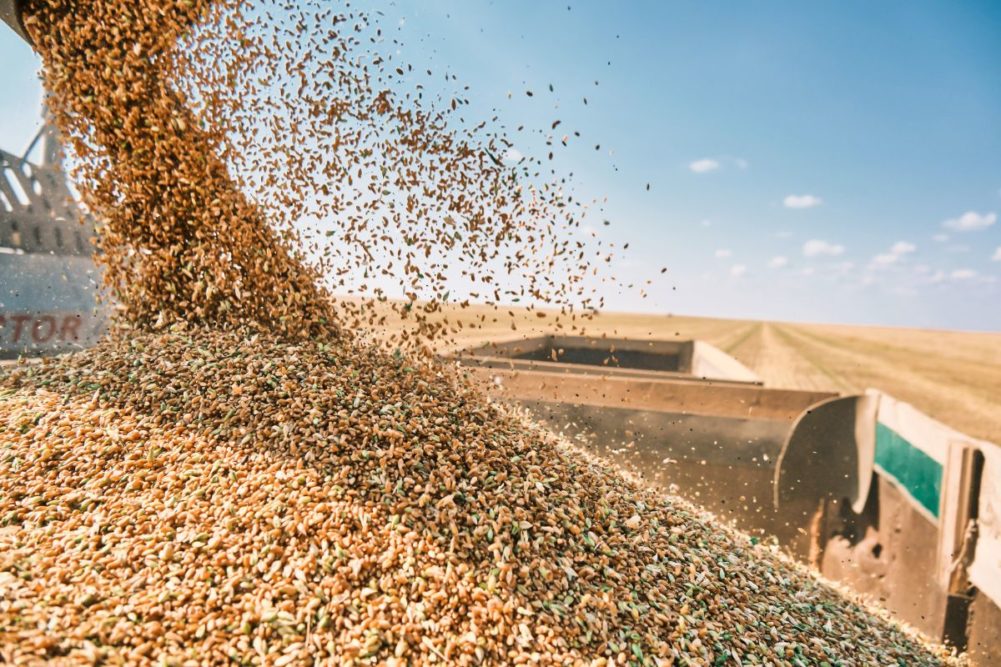Kazakhstan, Central Asia's largest grain producer, logged a tenfold increase in its exports of durum wheat becoming the European Union’s (EU) fourth-largest supplier during July to November, according to recent data released by the European Commission.
This marks a remarkable rise from the seventh position during the same period in the previous season.
From July to November, Kazakhstan exported 169.65 thousand tonnes of durum wheat to the EU, as compared to 17.32 thousand tonnes in the previous season.
Italy was the primary destination for Kazakh durum wheat, importing a substantial 128.43 thousand tonnes, the data showed. Latvia followed with 20 thousand tonnes, Portugal with around nine thousand tonnes, Spain with 6.39 thousand tonnes, Belgium with 4.11 thousand tonnes, and Poland with 1.67 thousand tonnes.
Kazakhstan outperformed Ukraine in the Polish market, which was a change in trends from the previous year.
The EU, with a population of approximately 450 million, stands as the world's second-largest consumer of wheat after China. It heavily depends on wheat imports to meet domestic demand. The top three suppliers of durum wheat (and flour) to the EU in the first five months of the current season were Türkiye, Russia, and Canada.
Kazakhstan's rise as a major durum wheat supplier to the EU can be attributed to its vast agricultural lands, covering 202 million hectares, or 74 percent of the country's total land area. The nation's favorable geography and diverse climate create optimal conditions for grain cultivation.
Key grain-producing regions in Kazakhstan include Kostanay, Akmola, and North Kazakhstan in the north, along with East Kazakhstan, Abai, and Pavlodar.
Kazakhstan has the capacity to export approximately half of its annual grain production. Wheat dominates the agricultural landscape, accounting for 80% of the country's grain production. Additionally, Kazakhstan is a major exporter of flour, with a focus on supplying other Central Asian nations and Afghanistan.
Earlier, President Kassym-Jomart Tokayev voiced Kazakhstan’s readiness to act as a regional food supply hub in order to improve global food security. In his words, the country is committed to utilizing its agricultural potential to fight global food insecurity.
In his speech at the 78th session of the UN General Assembly in New York last year, Tokayev said that economic and political sanctions have become “a new norm” that erodes the supply chains that ensure food security, threatening millions, especially in vulnerable communities. These problems contribute to the mounting challenges of soaring inflation, job losses, and fears of a worldwide recession, especially for developing nations.
The president also underscored the strategic significance of developing the transit and transport sector in the region, highlighting the potential pivotal role of the Trans-Caspian International Transport Route (TITR), also known as the Middle Corridor, in strengthening the interaction between the East and West.
The Middle Corridor has emerged as a critical trade route between Europe and Asia, offering considerable economic benefits and faster transit times for the landlocked countries in the region.
Compared to the Northern Corridor, the Middle Corridor provides a more cost-effective and faster trade route, reducing travel distance by 2,000 kilometers. Additionally, it benefits from more favorable climate conditions and reduces travel time by 15 days compared to sea routes. The Middle Corridor opens up immense opportunities for cargo traffic in Asia, enabling goods to reach the Middle East, North Africa, and the Mediterranean region by integrating port connections in Türkiye.







 President Ilham Aliyev shed light on the evolving contours of the peace process with Armenia during an international conference in Baku this week. ...
President Ilham Aliyev shed light on the evolving contours of the peace process with Armenia during an international conference in Baku this week. ...
 Azerbaijan and Armenia started the process of demarcation of their border on Tuesday, with the installation of the first border markers based on ge...
Azerbaijan and Armenia started the process of demarcation of their border on Tuesday, with the installation of the first border markers based on ge...
 Iranian President Ebrahim Raisi expressed Tehran’s readiness to participate in significant development projects in Sri Lanka during the inauguratio...
Iranian President Ebrahim Raisi expressed Tehran’s readiness to participate in significant development projects in Sri Lanka during the inauguratio...
 Iran and Pakistan have signed eight cooperation documents in various fields, and agreed to strengthen ties to fight terrorism in the region.
Iran and Pakistan have signed eight cooperation documents in various fields, and agreed to strengthen ties to fight terrorism in the region.
 As the conflict between Ukraine and Russia escalates, the strategic importance of Kharkiv, Ukraine's second-largest city, has come sharply into focus.
As the conflict between Ukraine and Russia escalates, the strategic importance of Kharkiv, Ukraine's second-largest city, has come sharply into focus.



